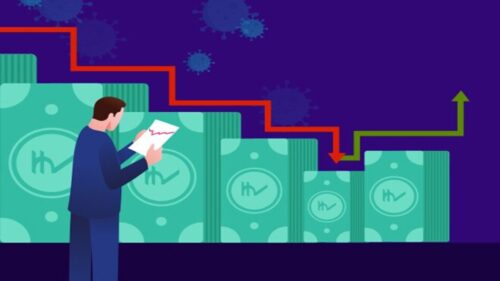THE ROLE OF CONSUMPTION, INVESTMENT, AND GOVERNMENT SPENDING IN GDP
The Role of Consumption, Investment, and Government Spending in GDP
Gross Domestic Product (GDP) is a vital measure of a country’s economic health and performance. It represents the total value of all goods and services produced within a nation’s borders over a specific period. GDP is influenced by various factors, but three key components play a significant role in shaping it: consumption, investment, and government spending. Understanding the interplay of these factors is crucial for policymakers and economists alike.
Consumption: The Powerhouse of the Economy
- Consumer Spending: Consumption is the largest driver of GDP in many economies. It includes expenditures by households on goods and services such as food, housing, clothing, and entertainment. High consumer confidence often leads to increased spending, boosting economic growth.
- Income and Employment: Rising wages and employment levels are essential for driving consumer spending. When people have more money in their pockets, they are more likely to consume, stimulating economic activity.
- Consumer Sentiment: Psychological factors like consumer sentiment and perception of economic stability can significantly impact spending behavior. Government policies and external shocks can influence consumer confidence.
Investment: Fueling Future Growth
- Business Investment: Investment, in the context of GDP, refers to spending by businesses on capital goods, such as machinery, buildings, and technology. High levels of business investment indicate confidence in future economic prospects.
- Research and Development: Investment in research and development (R&D) can lead to innovation, higher productivity, and increased competitiveness in global markets. This can have long-term positive effects on GDP.
- Housing Market: Residential investment, including home construction and renovation, also contributes to GDP. The health of the housing market can reflect overall economic stability.
Government Spending: The Stabilizer and Stimulus
- Fiscal Policy: Governments can influence GDP through their spending and taxation policies. During economic downturns, increased government spending can stimulate demand and stabilize the economy. Conversely, during periods of inflation or economic overheating, reduced government spending can help control inflation.
- Infrastructure Investment: Government spending on infrastructure projects, such as roads, bridges, and public transportation, not only creates jobs but also enhances long-term economic growth potential.
- Social Programs: Spending on social programs like healthcare and education can improve the quality of the labor force, potentially leading to higher productivity and increased GDP.
The Balance and Policy Implications
- Balancing Act: Maintaining the right balance between consumption, investment, and government spending is essential for sustained economic growth. Overreliance on one component can lead to imbalances and economic instability.
- Counter-Cyclical Policies: Governments often use fiscal and monetary policies to counteract economic fluctuations. For example, during a recession, policymakers may increase government spending and reduce interest rates to stimulate economic activity.
- External Factors: Global events, such as trade wars or pandemics, can disrupt the balance of these components. Governments must be adaptable and ready to respond to unforeseen challenges.
The role of consumption, investment, and government spending in GDP is intertwined, each playing a unique role in shaping the economic landscape. A healthy economy requires a delicate balance between these components, with governments and policymakers continually monitoring and adjusting their strategies to promote stable and sustainable economic growth. Understanding these dynamics is essential for crafting effective economic policies that benefit society as a whole.


